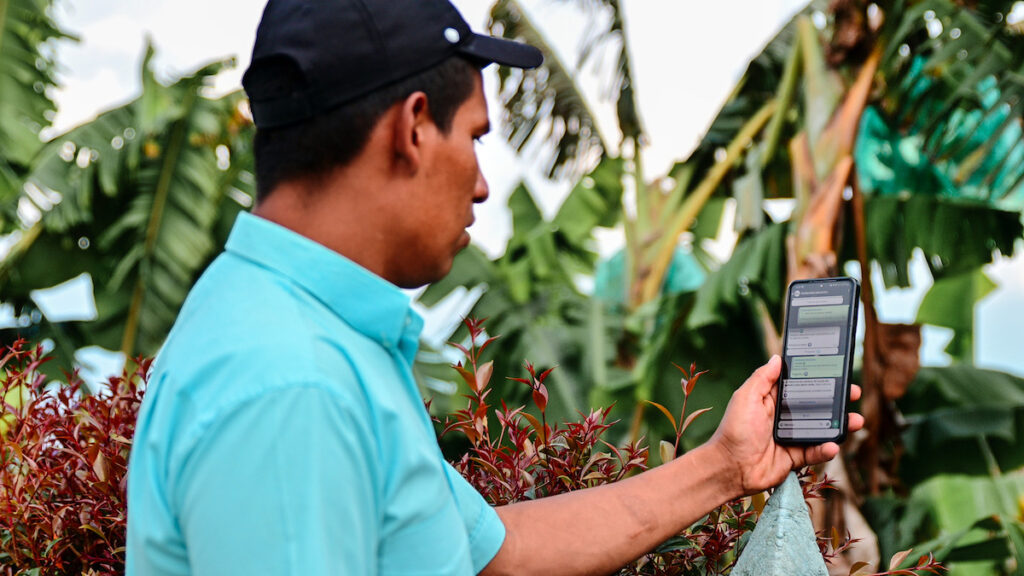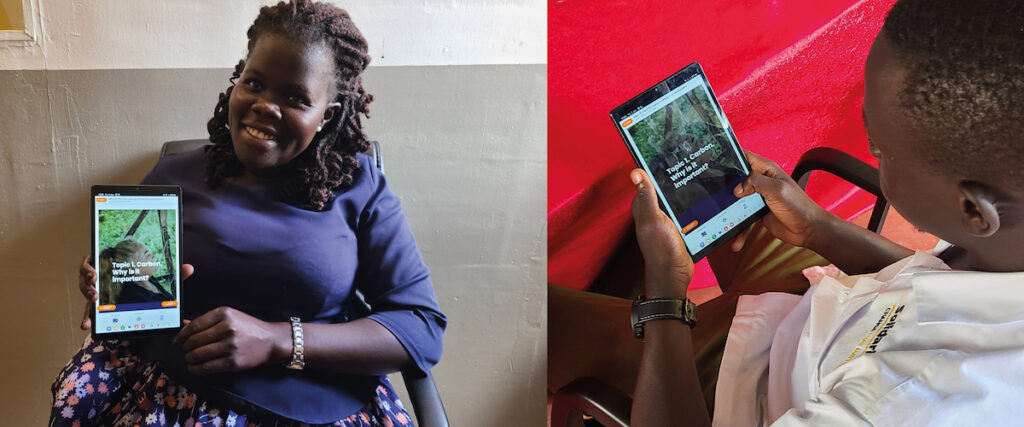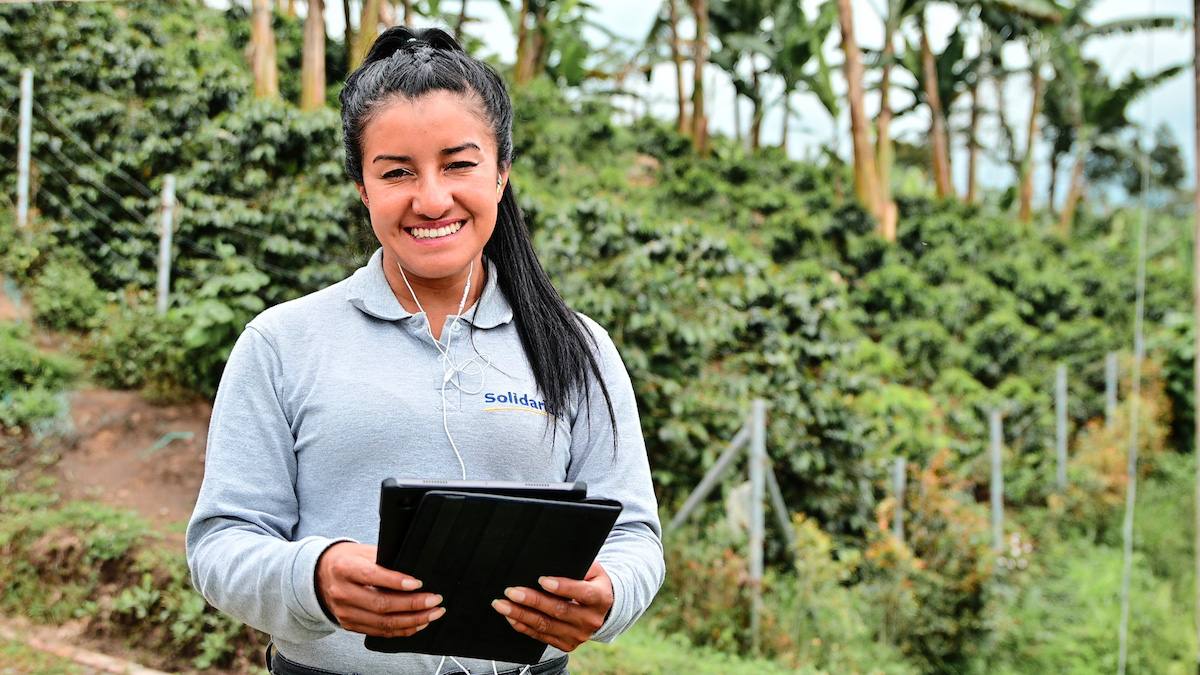Solidaridad works in the field to encourage sustainable carbon capture initiatives.
Why a Carbon Farming Academy?
Solidaridad has long recognized potential of carbon markets for smallholder farmers. As global demand for carbon credits increases and organizations seek to offset their carbon footprints, smallholder farmers who provide important ecosystem services are in a unique position, yet challenges remain. Accessing carbon markets can be a complex process. Small farmers often fail to find meaningful benefits from their work in the carbon removal markets.
The long-term success and sustainability of CO2 capture initiatives and carbon markets depends upon programme transparency, while also providing adequate compensation to participating farmers. The Acorn platform from Rabobank offers 80% of the credit value for carbon removal directly to farmers active in its voluntary market. Solidaridad already partners with Rabobank on the Climate Heroes initiative, and a new Carbon Farming Academy offers an educational platform to connect small-scale agroforestry projects with carbon credit markets.

I will benefit greatly from the Academy because I will learn about cover crops, farm finances, and, to top it all off, I can do it through WhatsApp.
Liliana Guapacha, a coffee grower from Risaralda, Colombia
What do Farmers Learn at the Carbon Farming Academy?
The main objective of the Carbon Farming Academy is to teach individuals how to adopt agroforestry systems to capture CO2 and receive compensation for these captures. Alex Amanya, Senior Project Manager for Solidaridad East and Central Africa, says that, “The Academy is really useful in our strategy to train farmers in Uganda and Kenya who work alongside our technical staff, lead farmers, and partner cooperatives.”

Students can choose among online sessions, face-to-face training, or a hybrid learning approach. A website and a mobile app provide 13 different learning modules that can be completed online, downloaded for offline access, or accessed via a WhatsApp chatbot.
The academy also provides printed educational materials from Solidaridad, plus learning games and gamification methodologies developed by &ranj, the Dutch-based specialists in education and behavioral change. Additionally, the Academy introduces climate-smart practices that enable smallholder farmers to adapt and prepare for the effects of climate change, all while improving their productivity.
Partnerships Enrich the Learning Experience
At Solidaridad, we continue to develop new partnerships to improve the technology, certifications, and content of the Carbon Academy. Thanks to an ongoing relationship between Solidaridad and Microsoft, Acorn field officers receive complementary digital skills training. The training is certified by Microsoft, and prepares the new officers for their work, while also providing them with innovative opportunities to connect with clients and farmers. To date, over 120 field officers have received their Microsoft certification in Colombia and Central America.

Through the Carbon Farming Academy and the Rabobank Acorn platform, Solidaridad is taking steps to make sure that carbon markets work for smallholder farmers. As Mauricio García, the Solidaridad Learning Solutions Lead in Colombia, says, “Solidaridad’s goal is to reach more than 100,000 farmers by 2025 with the Acorn platform, and the Carbon Farming Academy is a crucial tool to introduce and support farmers on this journey.”

